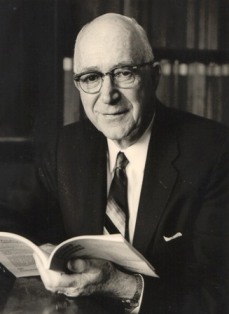2. Personality -Trait Theories
Trait Theory - Gordon Allport
The trait theory approach to personality started as a rejection of the popular pychoanalytical and humanistc view.
Allport's theory of personality emphasizes the uniqueness of the individual and the internal cognitive and motivational processes that influence behavior. For example, intelligence, temperament, habits, skills, attitudes, and traits.
Allport (1937) believes that personality is biologically determined at birth, and shaped by a person's environmental experiences.
Trait theories suggest that personality can be studied and described using a selection of traits, or descriptions.
 Gordon Allport started this movement by reducing a list of over 15000 adjectives that could describe individuals to just over 4000 words describing personalities. He organized those into three major categories:
Gordon Allport started this movement by reducing a list of over 15000 adjectives that could describe individuals to just over 4000 words describing personalities. He organized those into three major categories:
| Cardinal Traits |
A trait that dominates an individual's entire personality. Cardinal traits are thought to be quite rare. |
| Central Traits |
Common traits that make up our personalities. Traits such as kindness, honesty, and friendliness |
| SeconaryTraits |
Traits that are only present under certain conditions and circumstances. For example: getting nervous before delivering a speech to a large group of people, or becoming anxious before a test |